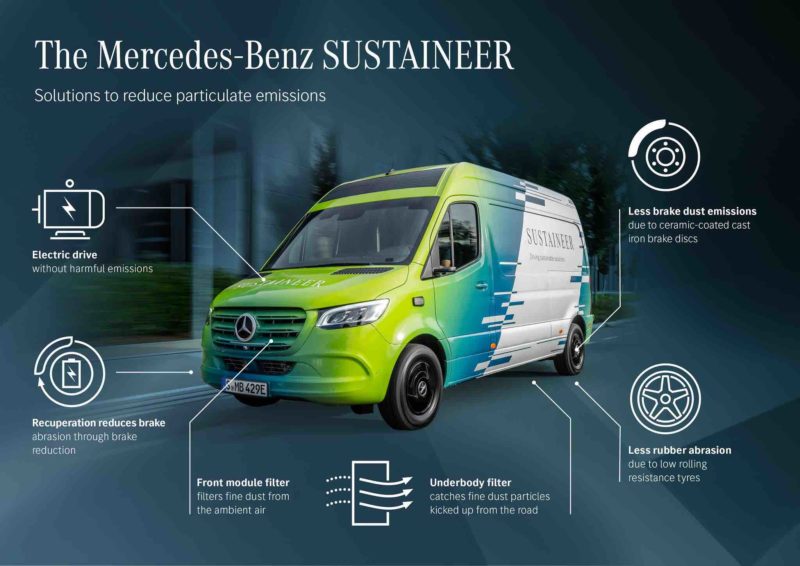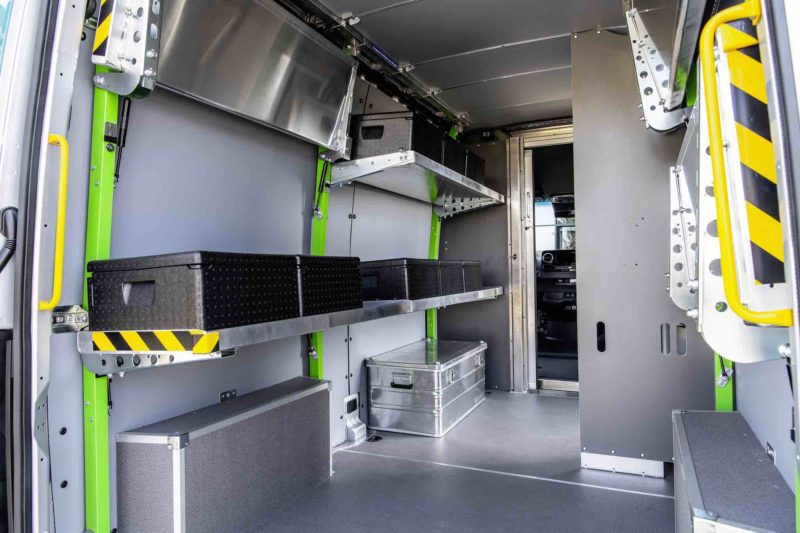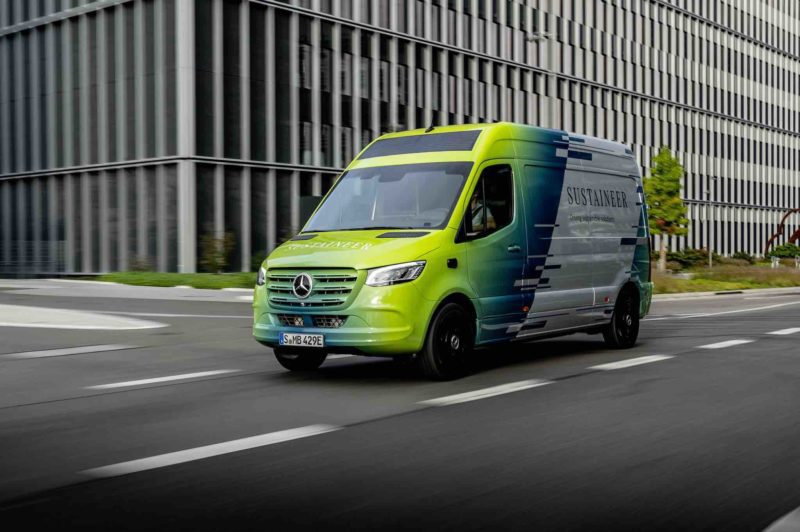Mercedes-Benz Vans has unveiled a new electric van concept that crams in a range of innovative sustainable technologies designed to improve quality of life in cities, such as solar panels, fine particle filters, and recycled material components.
The Sustaineer – short for Sustainability Pioneer – is focused on making last-mile delivery vans that are climate neutral, produce their own green electricity, and can actively improve the air quality in cities.
The fully electric Sustaineer is based on the Mercedes-Benz eSprinter – one of four battery-electric models offered by Mercedes-Benz Vans, along with the the eVito panel van, the eVito Tourer and the EQV – and is seeking to push the boundaries of sustainability.
There are two fine particle filters, one on the front module and another on underbody, helping to reduce surrounding emissions by more than 50% – meaning that the Sustaineer is not only emissions free, but as it drives it helps to clean the air around it.
Solar panels fitted to the roof are able to extend the all-electric range of the Sustaineer by several thousand kilometres per year, while component parts made of recycled materials demonstrate the potential of a circular economy to further help decarbonise the car manufacturing industry.

Low-rolling-resistance tires and ceramic-coated cast-iron brake discs also help to reduce pollution created by most vehicles while driving, and the load compartment extension with a partition wall has been made from straw panels, wooden elements from sustainably managed forests, and shelving coated with water-based lacquer.

The Sustaineer also represents Mercedes-Benz’ larger Ambition 2039 business strategy which is seeking to make the company’s fleet of private and commercial vans carbon neutral throughout their complete life cycle.
Mercedes-Benz will become the only car manufacturer in the world to offer a locally emission-free model in all van segments thanks to the pending introduction of the eCitan and the EQT.
And from the middle of 2025, all new vehicle architectures will be electric only, and will include the Mercedes-Benz Vans-developed electric only van architecture called VAN.EA.
By 2030, Mercedes-Benz Vans is looking to reduce the use of primary resources used in drive systems and battery technology by 40% compared with today’s figure.
Joshua S. Hill is a Melbourne-based journalist who has been writing about climate change, clean technology, and electric vehicles for over 15 years. He has been reporting on electric vehicles and clean technologies for Renew Economy and The Driven since 2012. His preferred mode of transport is his feet.


